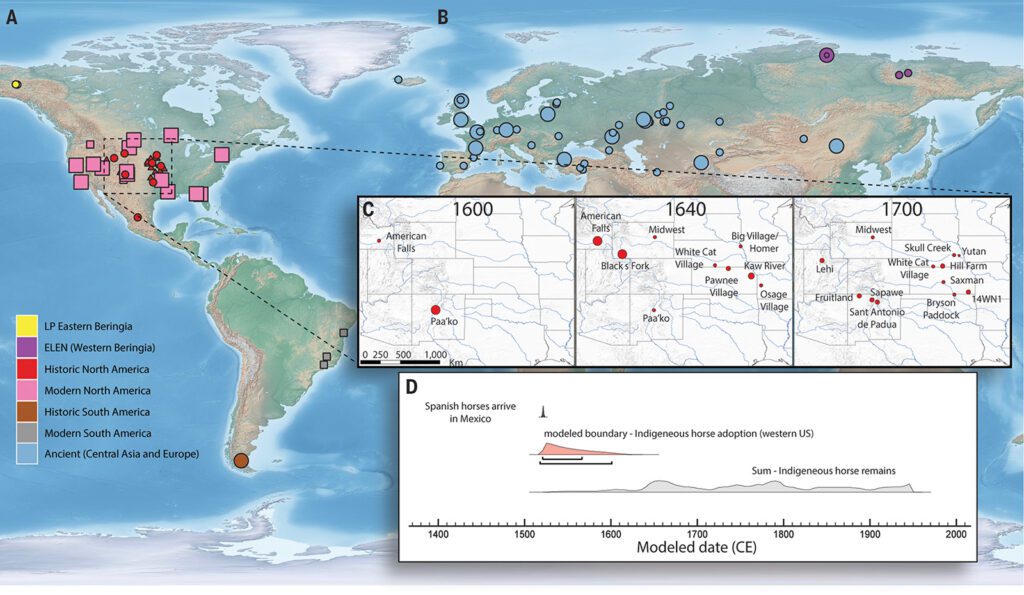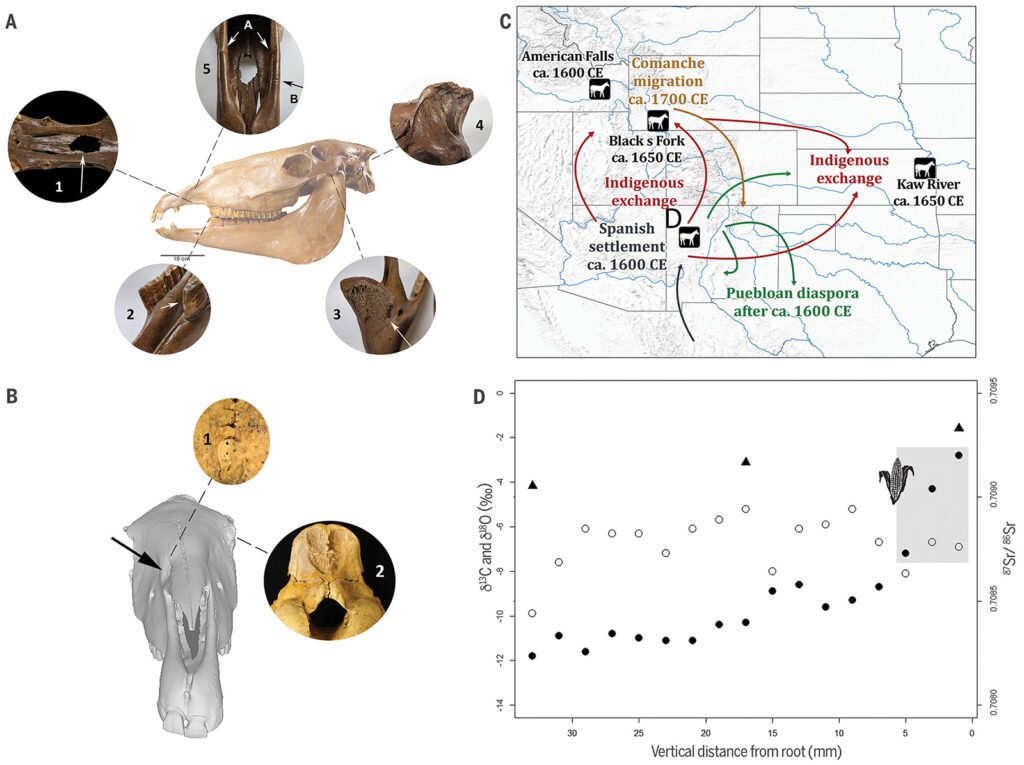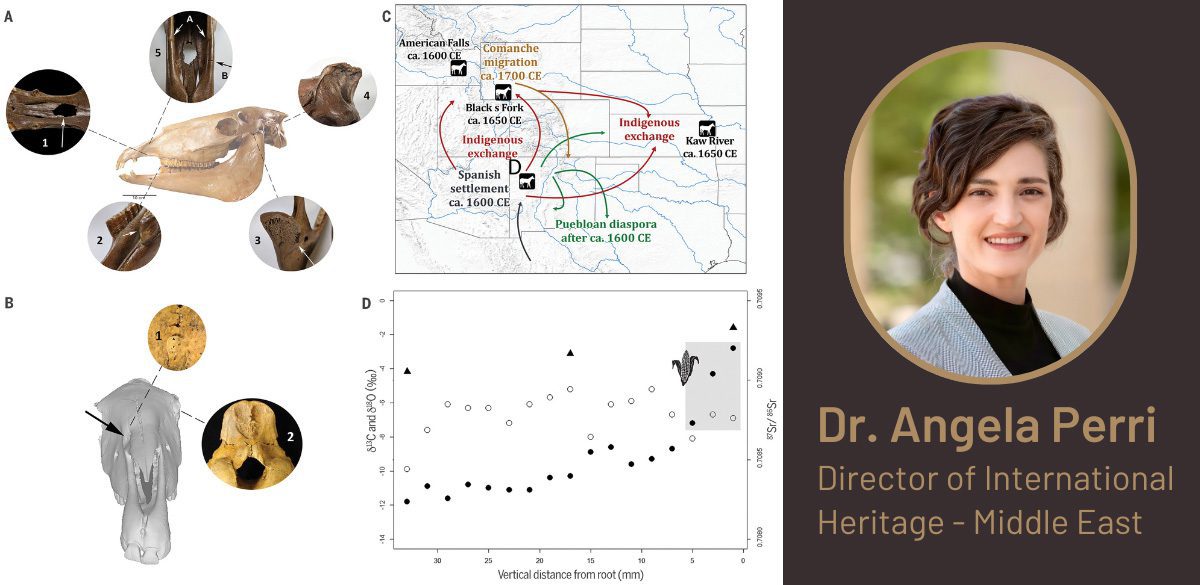Congratulations to Dr. Angela Perri, whose co-authored paper “Early dispersal of domestic horses into the Great Plains and Northern Rockies” was recently awarded the prestigious AAAS Newcomb Cleveland Prize! This prize is awarded to the author(s) of an outstanding research article published in Science that includes original research data, theory, or synthesis, is a fundamental contribution to basic knowledge, or is a technical achievement of far-reaching consequence.
It is known that horses evolved about 4 million years ago in North America, eventually spreading halfway around the globe into Eurasia and Africa. They appear to have become extinct in North America by the late Pleistocene Age, only to be reintroduced by European colonizers. The horse is central to many Indigenous cultures across the American Southwest and the Great Plains, but when and how horses were first introduced into Indigenous lifeways remain contentious, as extant models are largely derived from colonial records.

Dr. Perri and her co-authors conducted an interdisciplinary study of historic archaeological horse remains across the Old and New Worlds to seek answers to these questions, integrating genomic, isotopic radiocarbon, and paleopathological evidence. They extensively studied remains of domestic horses from Indigenous contexts, such as a juvenile horse burial in southwestern Wyoming, as a means of potentially reconstructing early human-horse relationships across the Americas. They found no evidence that North American horses had direct Pleistocene ancestry, but they did find that horses of European descent, primarily Spanish descent, had been integrated into Indigenous cultures across western North America long before Europeans arrived in the region.

Today horses have an outsized import to native peoples in the Americas as explained by Carlton Shield Chief Gover (speaking to Andrew Curry for a feature in Science that accompanied the publication of the study), a member of the Pawnee Nation and an archaeologist at the Indiana University Museum of Archaeology and Anthropology: “The introduction of this technology, of horses, changed Great Plains cultures. It’s the equivalent of the airplane. It shrank the world.”
Congratulations to Angela and her co-authors! You can access the full paper here on Science.com.

